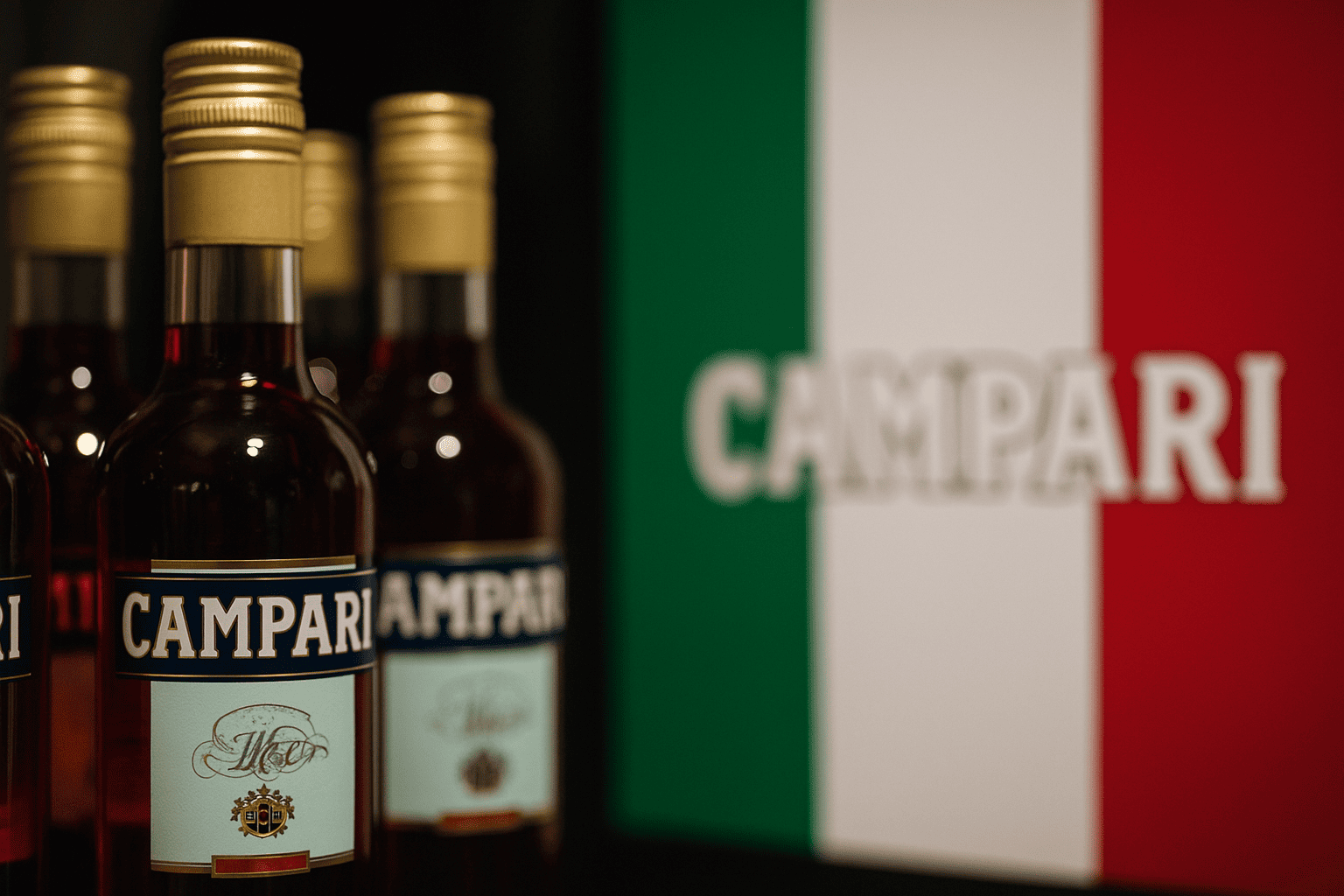Campari Shares Sink as €1.29B Seizure Hits Lagfin in Tax Probe
By Tredu.com • 11/3/2025
Tredu

What happened, and why investors care
Campari shares sink as €1.29B seizure hits Lagfin in tax probe, after Italian tax police seized shares held by Lagfin, the drinks maker’s controlling shareholder, as part of an investigation into alleged tax evasion. Reuters reported the value of the seizure at about €1.29 billion, roughly $1.5 billion, citing prosecutors who allege unpaid exit tax on capital gains following a 2019 group reorganization. Campari’s stock fell around 5 percent in Milan trading as investors assessed governance optics, potential overhang from legal proceedings, and any knock-on effects for liquidity. Lagfin said it denies wrongdoing and will defend itself.
The mechanics of the seizure
Authorities moved to seize a block of Lagfin’s Campari shares as a precautionary measure during the probe, a step that does not change Campari’s day-to-day operations. Reuters said the seized block equals about 17 percent of Campari’s ordinary stock. Despite the action, Lagfin continues to command more than 80 percent of voting rights due to the company’s governance structure, so control of Campari is intact for now. The company said neither Campari nor its subsidiaries are under investigation.
What investigators allege
Prosecutors contend Lagfin failed to pay exit tax on about €5.3 billion of capital gains that emerged when the original Italian holding vehicle merged into Luxembourg-based Lagfin, which holds Campari’s controlling stake. The claim centers on where capital gains should have been taxed and whether the 2019 corporate moves triggered an exit-tax liability. The seizure is intended to secure assets while the courts determine facts and liability. Lagfin has previously argued that it has always complied with tax obligations.
Corporate structure and control
Campari’s ownership is concentrated, with the Garavoglia family linked to Lagfin. That structure has long supported a stable strategy, rapid brand acquisitions, and disciplined capital allocation. The flip side is heightened sensitivity when the controller faces legal scrutiny. With the seized shares parked under preventive order, investors will monitor any limits on transfers, voting, or collateral use, as these factors can influence market liquidity and the controller’s financial flexibility, even if corporate control is not immediately challenged.
Market reaction and peer context
A 5 percent retreat in Campari’s stock fits a familiar pattern when control-holder legal risk surfaces, particularly in Europe’s branded consumer sectors where liquidity is constrained by concentrated registers. Comparable episodes often see an initial markdown, then stabilization as the legal path clarifies. The share-price impact may also reflect mechanical factors, such as changes to borrow availability for short sellers or shifts in index fund weights if free float calculations are revised.
What it means for Campari’s operations
Reuters and other outlets emphasized that Campari is not a target of the probe. Production, marketing, and distribution are expected to continue as normal across brands such as Campari, Aperol, Grand Marnier, and Wild Turkey. Execution risk in the core business remains driven by demand for aperitifs, on-trade recovery in tourism cities, and pricing discipline in the United States and Europe. The legal overhang sits outside operating lines, although leadership time and attention can be a secondary constraint.
Exit tax, explained in brief
Exit tax is designed to capture capital gains when assets or tax residence move out of one jurisdiction’s reach. Disputes often hinge on valuation dates, the location of economic ownership, and the timing of reorganization steps. In cross-border holding structures, tax authorities scrutinize mergers that consolidate control stakes abroad. Outcomes can include negotiated settlements, partial releases of seized assets, or court rulings that define the tax due, plus penalties and interest. That range of outcomes is why markets quickly price legal uncertainty.
Legal path and potential timelines
Italian cases of this type typically unfold over months, sometimes years, with opportunities for appeals. Judges may adjust or lift seizures as facts develop. If authorities formalize charges and prevail, remedies could include payment of assessed taxes and penalties. If Lagfin’s defense succeeds, seized assets would be released. In the interim, Campari’s investor relations effort will aim to separate the company’s fundamentals from the shareholder probe, while rating agencies watch for any governance flags.
Campari’s communication priorities
Clear, frequent updates can help temper volatility. Investors will look for confirmation that supplier terms, credit facilities, and acquisition pipelines are unaffected. The company can reiterate that Campari shares sink on €1.29B Lagfin seizure and tax probe due to shareholder-level legal risk, not due to a change in operating momentum, and that liquidity in the stock remains adequate for institutional holders. Guidance around cash generation, marketing investment, and brand renovation plans will remain the near-term anchor for valuation.
What to watch next
Key signposts include any court disclosures that narrow the dispute, statements from Lagfin on legal strategy, and Campari’s next scheduled trading update. If authorities specify the portion of shares subject to restrictions on voting or transfer, governance analysts will refine control models. If valuations of seized assets are adjusted with market prices, brokers may update liquidity and index weight calculations. Cross-border tax rulings in similar cases could also offer clues to likely outcomes.
Bottom line
Campari shares sink on €1.29B Lagfin seizure, tax probe, after Italian authorities secured a precautionary block of stock in a dispute over exit tax from a 2019 restructuring. Control of Campari remains with Lagfin, operations are unaffected for now, and the share move reflects headline legal risk while the courts sort the facts.

How to Trade Like a Pro
Unlock the secrets of professional trading with our comprehensive guide. Discover proven strategies, risk management techniques, and market insights that will help you navigate the financial markets confidently and successfully.


